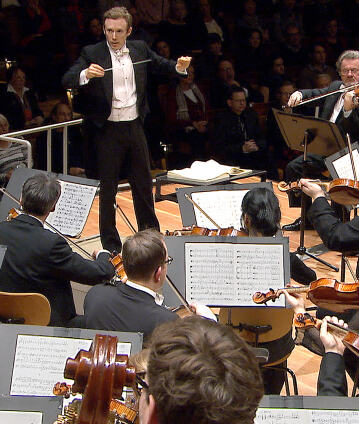Daniel Harding dirige la Sixième de Mahler

De toutes les œuvres de Gustav Mahler, la Symphonie n° 6 est l’une des plus extrêmes. Non seulement l’effectif orchestral dépasse tout ce qu’on avait pu entendre jusque-là, mais l’intensité de l’expression met l’orchestre à rude épreuve, en particulier dans les moments de pure violence à travers lesquels Mahler renvoie à la brutalité du XXe siècle naissant. Le chef d’orchestre est Daniel Harding.
Berliner Philharmoniker
Daniel Harding
© 2014 Berlin Phil Media GmbH
Artistes
Nos suggestions
- Daniel Harding et Frank Peter Zimmermann
- Daniel Harding dirige « Ainsi parlait Zarathoustra »
- Europakonzert 2019 avec Daniel Harding depuis le Musée d’Orsay à Paris
- Daniel Harding dirige la Cinquième de Bruckner
- Daniel Harding dirige la « Romantique » de Bruckner
- Le Concerto pour violon de Britten avec Janine Jansen et Daniel Harding